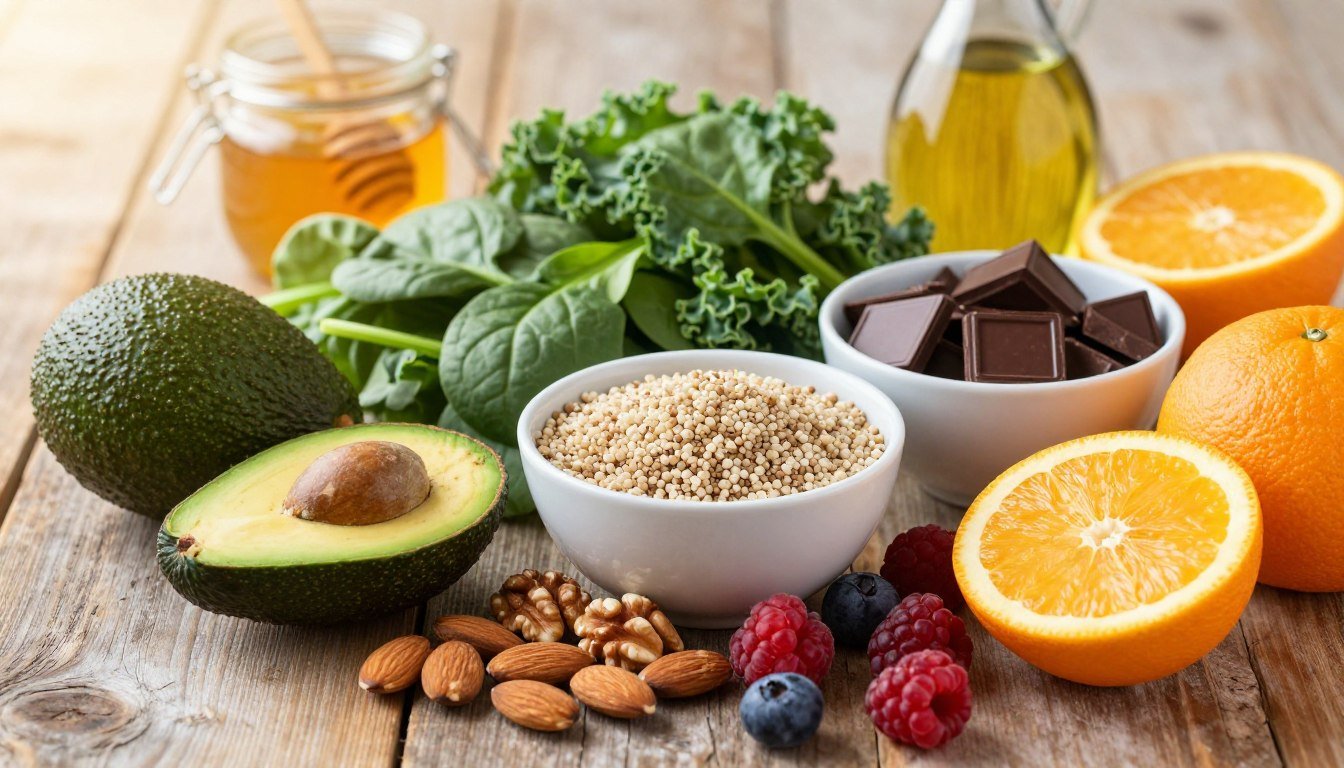As an Amazon Associate I earn from qualifying purchases.
Why You Shouldn't Skip Breakfast Anymore

In our fast-paced world, skipping breakfast has become increasingly common. With the rise of intermittent fasting and busy morning schedules, many people opt to skip breakfast entirely, believing it saves time or aids in weight management. Recent surveys show that up to 25% of Americans regularly skip breakfast, despite its long-standing reputation as “the most important meal of the day.” But is this morning meal truly essential, or can we function optimally without it?
Many people skip breakfast due to busy morning schedules, but this habit may have consequences.
Science-Backed Benefits of Not Having to Skip Breakfast
While intermittent fasting proponents suggest skipping breakfast can be beneficial, substantial research indicates that a nutritious morning meal provides significant advantages for your body and mind. Understanding these benefits can help you make informed decisions about your morning routine.
Breakfast helps jumpstart your metabolism after the overnight fast.

Metabolic Boost and Energy Stabilization
After sleeping through the night, your body has been fasting for 8-12 hours. Eating breakfast within an hour of waking helps jumpstart your metabolism. According to research published in the Journal of Nutrition, individuals who eat breakfast experience more stable blood sugar levels throughout the day, which helps maintain consistent energy levels.
A study from the University of Bath found that people who eat breakfast burn more calories during morning activities compared to those who skip it. This metabolic boost helps with morning energy and may contribute to better weight management over time.
Improved Cognitive Performance
Your brain requires glucose to function optimally, and breakfast provides this essential fuel after the overnight fast. Research published in the journal Frontiers in Human Neuroscience demonstrated that students who ate breakfast performed significantly better on cognitive tests than those who skipped it.
Brain scans show increased activity in those who eat breakfast compared to those who skip it.
A 2018 study in the British Journal of Nutrition found that breakfast consumption was associated with better memory, attention span, and information processing. These cognitive benefits are particularly important for school-aged children and working adults who need to maintain focus throughout the morning.
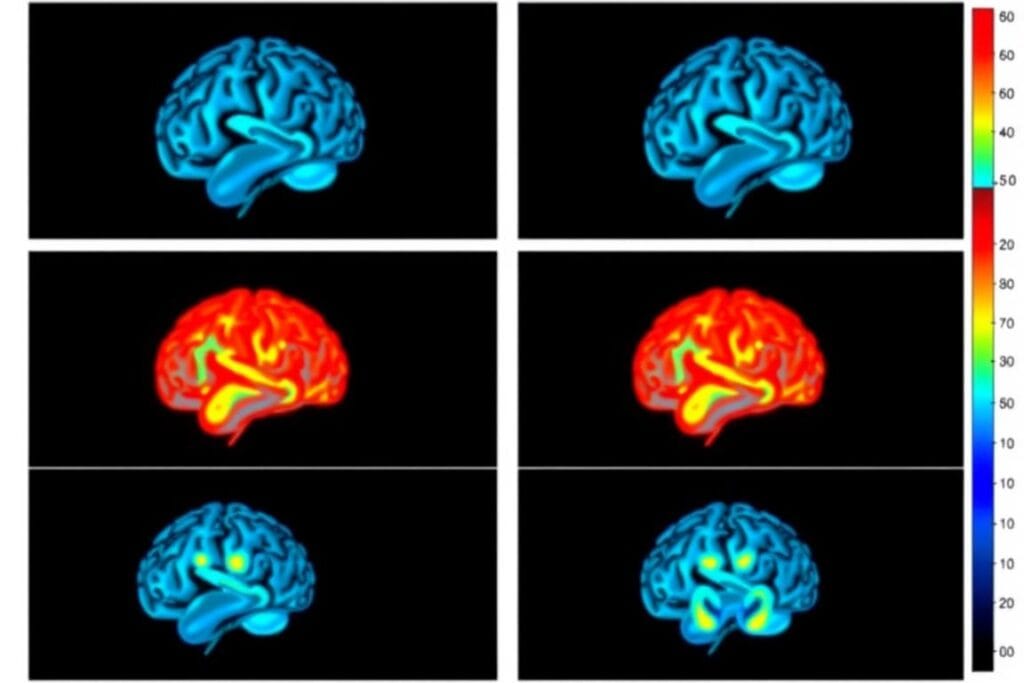
Reduced Risk of Overeating Later
Contrary to popular belief that skipping breakfast helps reduce calorie intake, research suggests the opposite often occurs. A study in the American Journal of Clinical Nutrition found that those who skip breakfast tend to consume more calories throughout the day, particularly from high-fat, high-sugar foods.
When you skip breakfast, you may feel very hungry by mid-morning or lunchtime. This can lead to making quick food choices and overeating. A balanced breakfast helps regulate hunger hormones like ghrelin, reducing the likelihood of unhealthy snacking later in the day.
Skipping breakfast can lead to mid-morning energy crashes and difficulty concentrating.

Blood Sugar Crashes and Mood Swings
When you skip breakfast, your blood sugar levels remain low after the overnight fast. This can trigger a stress response in your body, releasing cortisol and adrenaline. According to research in the journal Appetite, breakfast skippers often experience more significant mood fluctuations and irritability throughout the morning.
The combination of low blood sugar and stress hormones can manifest as headaches, difficulty concentrating, and even shakiness. As noted by Antigone Senn, a registered dietitian quoted in the Henry Ford Health article, many people experience “headaches, blood sugar dips, faintness and difficulty concentrating when they skip breakfast.”
“If you’re not hungry, there’s no reason to shove down an unsatisfying breakfast. But in many cases, the people who say they’re not hungry are actually getting their calories from supersized gourmet coffee drinks that pack a ton of fat and calories.”
– Antigone Senn, RDN, Henry Ford Health
Long-term Health Risks
Consistently skipping breakfast has been associated with several long-term health concerns. A study published in the Journal of the American College of Cardiology found that people who skip breakfast have a 27% higher risk of heart disease compared to regular breakfast eaters.
Research in Diabetes Care indicates that skipping breakfast is associated with a higher risk of type 2 diabetes. This may be due to the prolonged fasting period leading to insulin resistance over time. Additionally, a study in the journal Obesity found that breakfast skippers had a 4.5 times higher risk of obesity compared to those who ate breakfast regularly.
Long-term health comparisons between those who eat and skip breakfast show significant differences in disease risk.
5 Quick & Nutritious Breakfast Ideas When You Can't Skip Breakfast
One of the most common reasons people skip breakfast is lack of time. These five nutritious breakfast options each require five or fewer ingredients and can be prepared in under 10 minutes, making them perfect for busy mornings.
1. Overnight Oats
Ingredients: Rolled oats, milk (dairy or plant-based), Greek yogurt, honey, berries
Prep time: 5 minutes (evening before) + 0 minutes morning
Mix ½ cup oats with ½ cup milk and ¼ cup Greek yogurt. Add 1 teaspoon honey and refrigerate overnight. Top with fresh berries in the morning for a grab-and-go breakfast rich in fiber and protein.
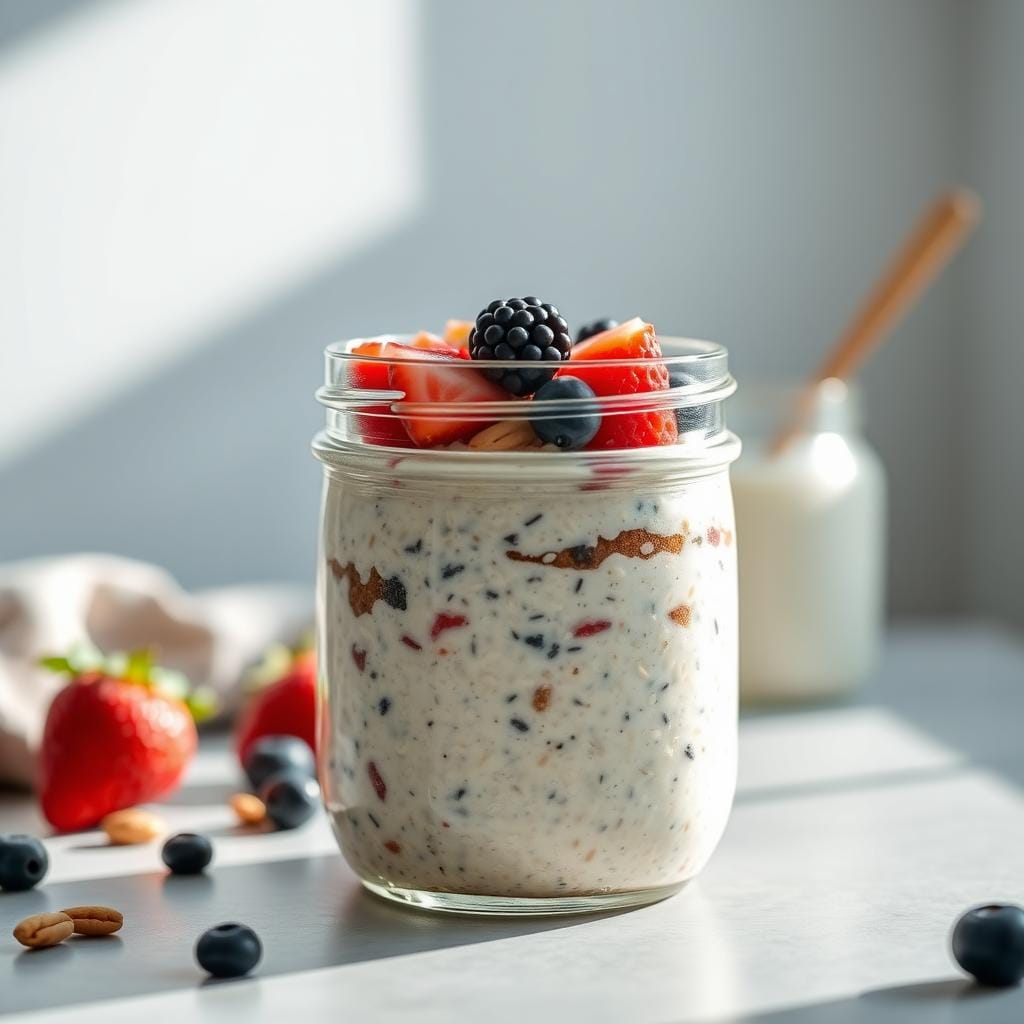
2. Avocado Toast with Egg
Ingredients: Whole grain bread, avocado, egg, salt, pepper
Prep time: 7 minutes
Toast a slice of whole grain bread while cooking an egg (fried or poached). Mash ¼ avocado onto the toast, top with the egg, and season with salt and pepper. This breakfast provides healthy fats, protein, and complex carbohydrates.
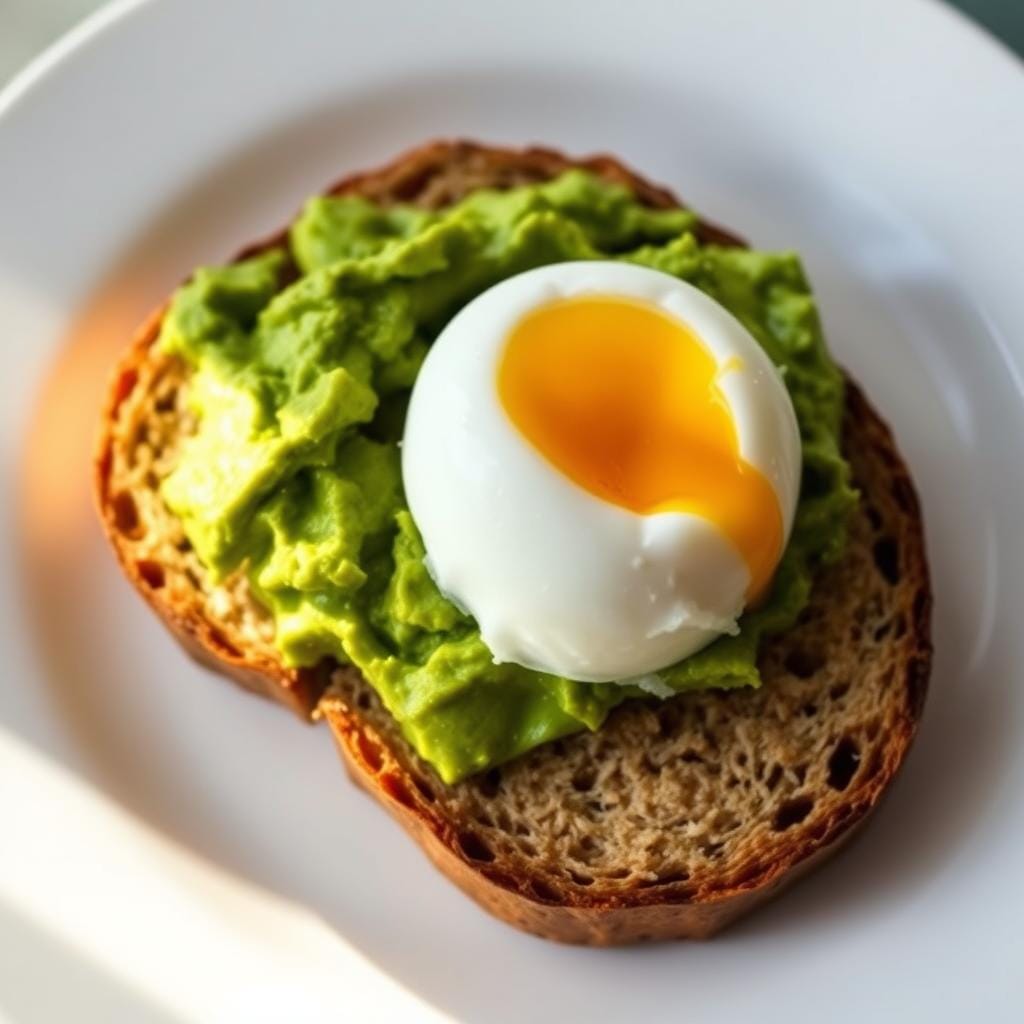
3. Greek Yogurt Parfait
Ingredients: Greek yogurt, granola, berries, honey, nuts
Prep time: 3 minutes
Layer 1 cup Greek yogurt with 2 tablespoons granola, a handful of berries, and a sprinkle of chopped nuts. Drizzle with a teaspoon of honey. This protein-packed breakfast provides sustained energy throughout the morning.
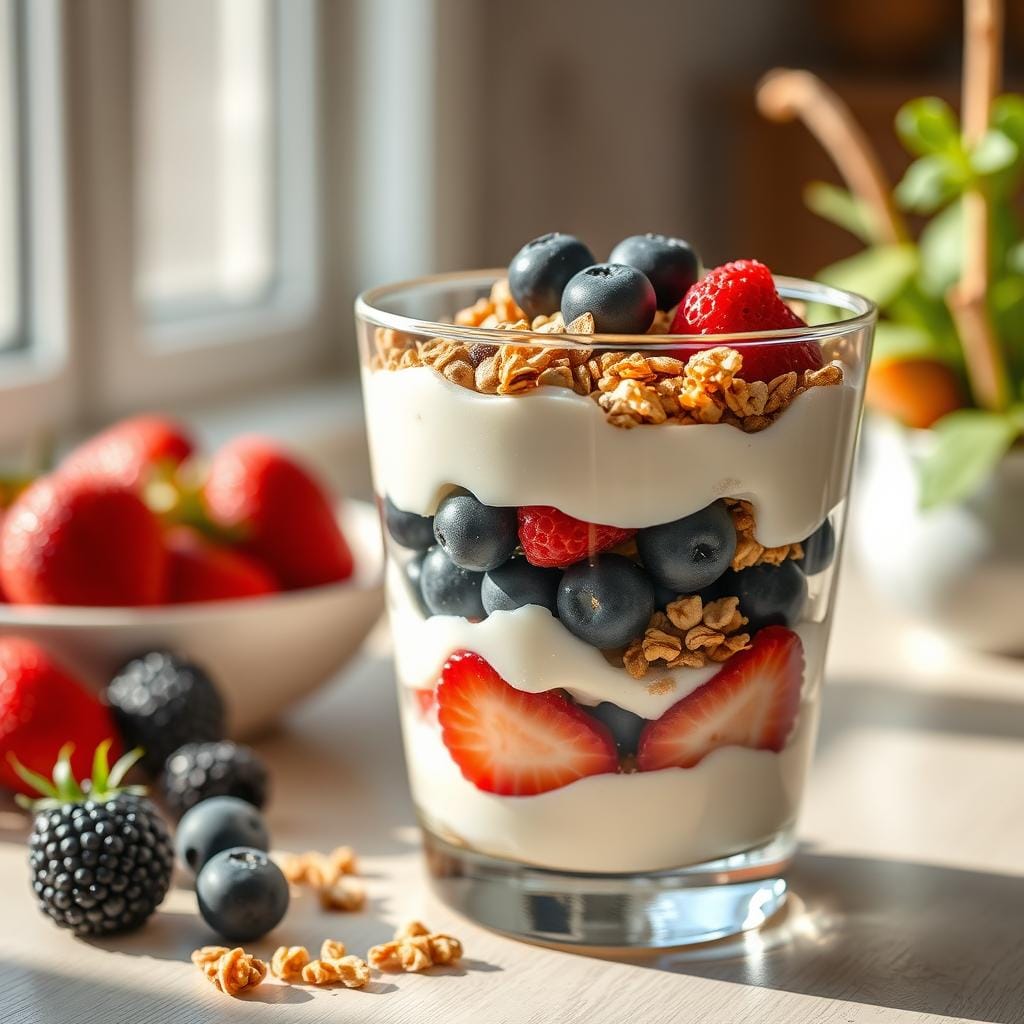
4. Protein Smoothie Bowl
Ingredients: Frozen banana, protein powder, milk, spinach, toppings (granola, seeds)
Prep time: 5 minutes
Blend 1 frozen banana with 1 scoop protein powder, ½ cup milk, and a handful of spinach until thick. Pour into a bowl and top with granola and seeds. This nutrient-dense breakfast provides protein, vitamins, and minerals.
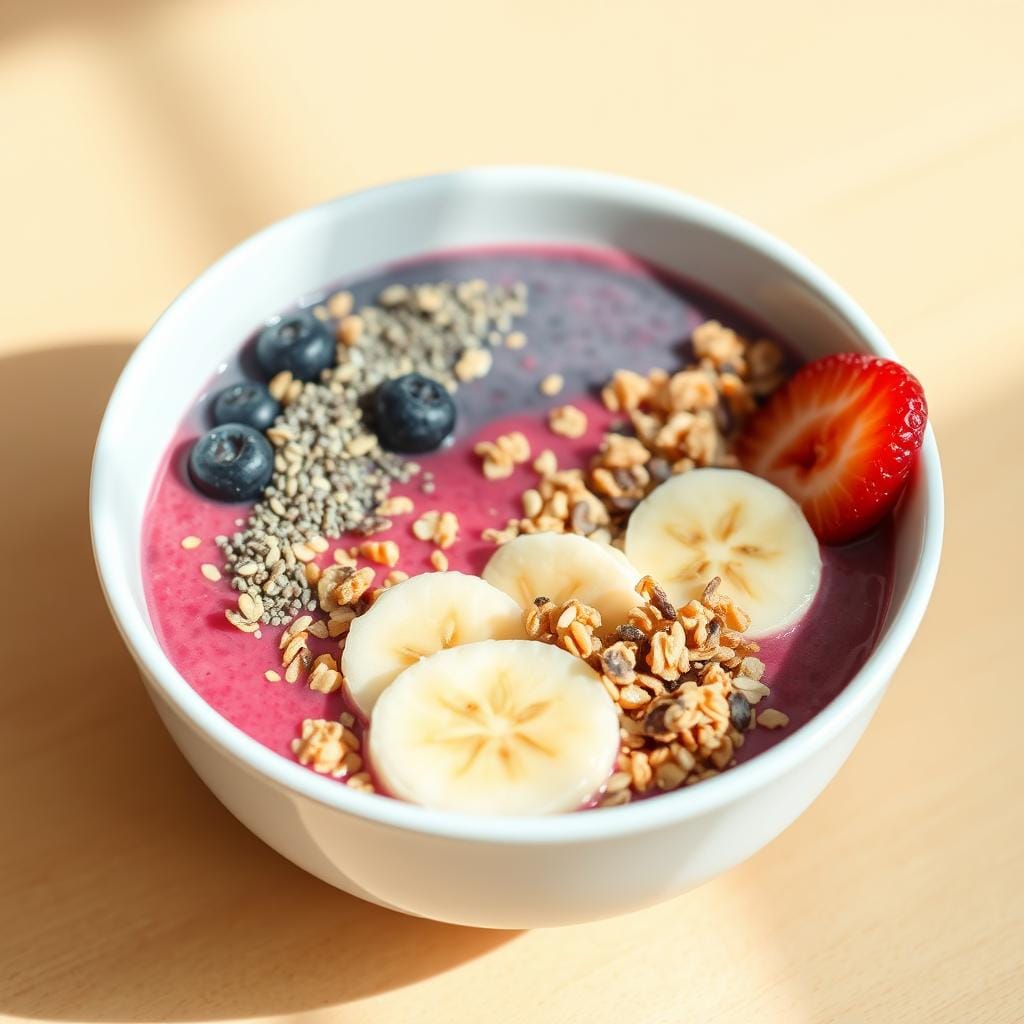
5. Microwave Egg Muffin
Ingredients: Eggs, cheese, bell pepper, spinach, salt
Prep time: 3 minutes
Whisk 2 eggs in a microwave-safe mug. Add 1 tablespoon shredded cheese, 2 tablespoons chopped bell pepper, and a handful of spinach. Microwave for 90 seconds. This protein-rich breakfast takes minimal time and equipment.

Need more breakfast inspiration?
Discover 10 more high-protein breakfast recipes that can be prepared in under 15 minutes!
Debunking Common Myths About Skipping Breakfast
Scientific evidence challenges many common beliefs about skipping breakfast.
Myth #1: Skipping Breakfast Helps With Weight Loss
One of the most persistent myths is that skipping breakfast aids weight loss by reducing overall calorie intake. A review in the British Medical Journal looked at many studies. It found that people who skip breakfast often eat more later in the day.
The review concluded: “Breakfast has been called the most important meal of the day since 1917. However, there is little evidence that eating breakfast helps with weight loss.” However, this doesn’t mean skipping breakfast is beneficial either—what matters most is the quality of food consumed throughout the day.
Myth #2: Breakfast "Jumpstarts" Your Metabolism
While many believe eating breakfast immediately boosts metabolism, research shows that what matters is the total amount of food consumed throughout the day, not when you eat it. Studies demonstrate no significant difference in calories burned over 24 hours between breakfast eaters and skippers.
However, eating a balanced breakfast can help regulate hunger hormones and blood sugar levels, which may indirectly support metabolic health by preventing extreme hunger and subsequent overeating later in the day.
Hunger hormone levels throughout the day differ between those who eat and skip breakfast.
Myth #3: Everyone Must Eat Breakfast Within an Hour of Waking
The idea that everyone must eat immediately after waking isn’t supported by evidence. Individual factors like personal hunger cues, activity levels, and health conditions should guide your breakfast timing. As noted in the Henry Ford Health article, “If you’re not hungry, there’s no reason to shove down an unsatisfying breakfast.”
For individuals who exercise in the morning, have demanding jobs, or manage diabetes, a balanced breakfast is essential. It helps maintain stable energy and blood sugar levels.
Should everyone eat breakfast regardless of hunger levels?
No, individual factors matter. If you’re genuinely not hungry in the morning, forcing yourself to eat isn’t necessary. However, assess whether you’re truly not hungry or simply in the habit of skipping breakfast. Many people find that after establishing a regular breakfast routine, their body begins to expect and desire morning nourishment.
The Bottom Line on Whether to Skip Breakfast
The evidence suggests that while skipping breakfast isn’t inherently harmful for everyone, most people benefit from starting their day with a nutritious meal. The quality of your breakfast matters more than strict timing—focus on including protein, healthy fats, and complex carbohydrates rather than processed, sugary options.

A balanced breakfast sets a positive tone for your entire day.
Consider your personal schedule, hunger cues, and health goals when deciding on your breakfast routine. If you skip breakfast because you are short on time, try the quick recipes above. You can also prepare meals ahead on weekends. If intermittent fasting works well for your body and lifestyle, consult with a healthcare professional to ensure you’re meeting your nutritional needs during your eating window.
Remember that establishing healthy morning habits extends beyond just breakfast—adequate hydration, brief movement, and mindfulness can all contribute to starting your day on the right foot.
What’s your breakfast routine?
We’d love to hear about your morning nutrition habits! Share your favorite quick breakfast ideas or how you’ve transitioned from skipping breakfast to making it a regular part of your day.
Amazon and the Amazon logo are trademarks of Amazon.com, Inc or it's affiliates.
Related Posts
- Easy Cottage Cheese Pancake
Easy Cottage Cheese Pancake In a world where breakfast is often rushed, it's a delight…
- Vegan Easter Brunch Scramble
Vegan Easter Brunch Scramble As Easter gets closer, I'm excited to share my favorite Vegan…
- Homemade Healthy Granola Recipe
Homemade Healthy Granola Recipe The Ultimate Healthy Granola Delight In the pursuit of a wholesome…



